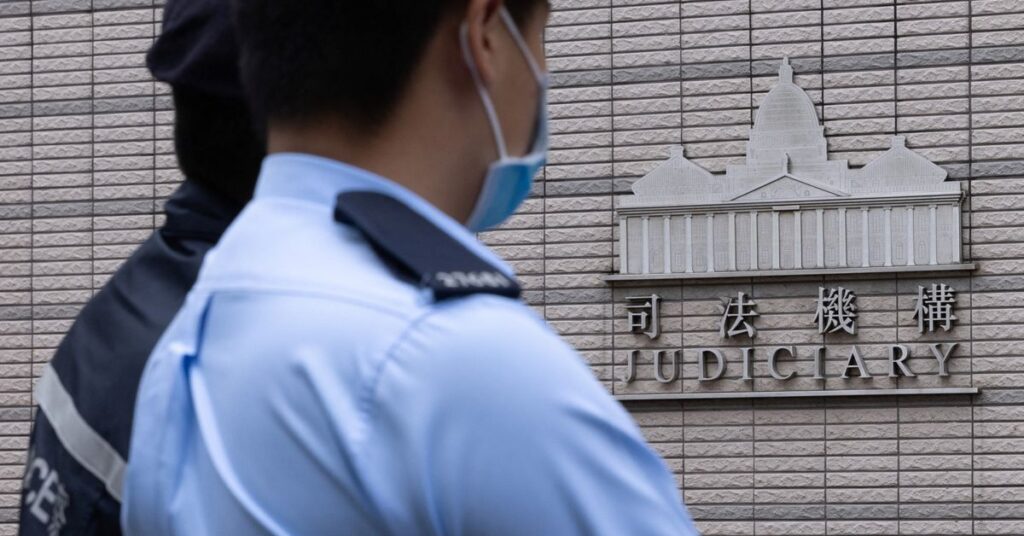China Lets Hong Kong Rule on Overseas Lawyers in Security Cases
China Lets Hong Kong Rule on Overseas Lawyers in Security Cases is our today’s topic. China has given Hong Kong the authority to decide if it accepts the services of overseas lawyers in security cases. This decision is a move that has sparked anger in Hong Kong’s legal community. Many believe that China’s actions are a tool used to suppress political dissent, while other argue that the move is an attempt to keep Hong Kong from becoming more independent.
‘Smoke, mirrors, and misdirection’ to influence Americans
Chinese officials are using smoke, mirrors, and misdirection to influence the American public. They are making it hard for the American people to see what they are doing, and they are doing it with the help of Hollywood.
The Chinese government isn’t the only country using influence measures. Iran, Russia, and others are waging information warfare in the United States.
China has long used a variety of influence tactics to sway Americans. From using cyberattacks to securing sensitive data, the Chinese Communist Party is doing what it can to keep itself in power.
The Chinese government is also trying to manipulate American academic institutions, political figures, and the media. In fact, it is pushing these organizations to self-censor. For instance, the Chinese government recently banned Chinese students from attending the University of California at San Diego.
New security law is a tool to suppress political agitation
A national security law drafted by the Chinese government is set to become effective in Hong Kong on June 30. The legislation aims to stamp out opposition to the ruling Communist Party in the city. It also sets up a vast network of security forces.
The law has received widespread international criticism. Critics say it is vague and could be used to target political dissent. They fear it will bring harsh legal practices to Hong Kong.
Protests against the new security law have occurred every year since the 2003 passage of the legislation. Beijing has stated that the law is necessary to protect the city from violent protests.
Last November, a pro-democracy camp won the election for District Council in Hong Kong. This could be a turning point in the history of the territory.
Public trust in Hong Kong’s media fell to its lowest level in two decades
There are many challenges facing the Hong Kong media. They include economic pressures and ownership pressures. And they can be influenced by mainland-linked actors who have the ability to shift editorial lines.
Beijing’s National Security Law, imposed on Hong Kong on June 30, 2020, has disrupted the city’s return to “business as usual.” It has profoundly affected press freedom and free expression. NSL has been used to crack down on civil society organizations and political protests. The law has serious implications for the future rights of Hong Kong residents and foreign individuals.
One of the most alarming aspects of the law is its impact on the rule of law. Its vagueness allows authorities to target people for criminal offenses. Prosecutions have been used to target journalists and human rights lawyers.
Chief executive regrets CBD ban
The recent ban on CBD in China has caught many CBD stakeholders off guard. This is particularly true in Hong Kong where CBD is a hot commodity. Since the city’s first CBD cafe opened in July 2020, the unregulated industry has grown by leaps and bounds. Several CBD businesses are now scrambling to figure out their next moves.
A CBD ban on its own is no small feat, especially given the fact that the Chinese government estimates that it is supplying about one third of the world’s supply. Despite the ban, Chinese companies have made aggressive efforts to export their products abroad. These efforts may well end up stifling the CBD industry in Hong Kong.
While it is not surprising that the Chinese government would ban a product that supposedly has medical benefits, the timing of this ban has been a bit confusing. Although China had made its plans known months ago, the new rules have come as a rude shock to CBD operators in Hong Kong.
‘Anonymity is important’
Anonymity is the lack of a name or identifying information. The concept of anonymity is usually associated with privacy, but it also plays a role in security cases.
In some cases, anonymity can have dramatic effects on various parties. It can allow people to speak freely, protect taboo subjects, and reduce accountability for actions. However, it can be dangerous as well.
If a person makes a mistake, he or she may wish to conceal their identity to avoid retribution. This is particularly important in the case of a whistleblower. Disclosing the name of an anonymous whistleblower can expose the whistleblower to retribution, which can be fatal to their career.
Although there is no single legal standard regarding anonymity, the right to anonymity is protected worldwide. This is based on the First Amendment and has been recognized by the US Supreme Court many times.
